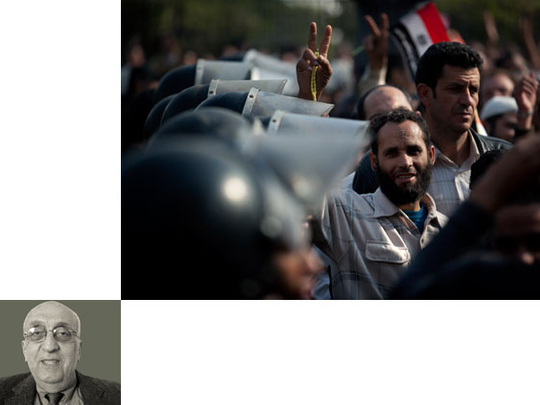
It is appalling to watch the political turmoil in Egypt and the bloody conflict in Syria (which has reportedly cost the lives of some 40,000 people) — two leading pillars in the Arab world where seemingly hesitant steps are being taken towards much-needed democracy to eliminate one-party rule or autocratic regimes. Whether they succeed in the near future may depend on neighbouring Arab governments and some influential world leaders, possibly at a price.
Several Arab states, particularly Egypt and Syria, as much as the Palestinian National Authority, are in urgent need of financial assistance, mostly in the hands of the US and a few European powers. A few Arab states like oil-rich Qatar and Saudi Arabia, among other Arab countries, have meanwhile promised to help the Palestinians, who are virtually bankrupt, in part due to the Israeli occupation and recent US threats that they may curtail financial assistance since the recent admission of the State of Palestine as a non-member observer state to the United Nations.
Israel, in fact, went a step further in line with the projected American reaction, stopping the transfer of taxes and customs duties it collected on behalf of Palestinians.
Similarly Egypt, at present in a very tight financial spot, is hoping US assistance to the tune of $450 million, part of a $1 billion assistance programme, will be paid as soon as possible. But the murky political situation inside Egypt is posing a major hurdle to some critics within the US Congress.
The Washington Post reported last Tuesday that the risks involved in heading off a destabilising economic collapse has been on “sharp display in Egypt in the clashes between protesters and forces loyal to President Mohammad Mursi, whose Islamist government must be trusted by the United States, the International Fund, the World Bank and others to deliver on commitments made in return for international support”.
The paper added that Egypt’s potential creditors “say the situation has left them with a difficult choice: Take a chance on Mursi, or leave the country with a lifeline and surrender the ability to influence his direction”. It was not clear whether this involved political or economic issues. But what has raised many an eyebrow — since it made matters worse for the struggling Egyptian president — is his postponement of a $4.8 billion deal from the International Monetary Fund.
This step is bound to shake international confidence in the Egyptian leader. Another blow has come from most of Egypt’s judges who had just rejected overseeing the country’s constitutional referendum on Sunday, adding serious doubt on the disputed charter.
The other side of the Arab coin was the surprise remark of President Barack Obama in a press interview that the US has now recognised the newly formed coalition of the Syrian opposition groups, known as the Syrian National Coalition.
Doubts persist
This is a step that will undoubtedly rattle the ground in the strife-torn country and its resilient leader Bashar Al Assad. Although this step may give new international legitimacy to the uprising in Syria, it is doubtful it would mean that the US administration is now willing to arm the opposition since Obama has repeatedly refused to do so.
“We’ve made a decision that the Syrian National Coalition is now inclusive enough, is reflective and representative enough of the Syrian population, that we consider them he legitimate representative of the Syrian people in opposition to the Al Assad regime,” Obama told ABC News in an exclusive interview.
But this surprise step does not necessarily mean that this new regime will inherit the country shortly since the strategic location of Syria in the Middle East poses a serious imbalance to the forces current at play there. It, however, may lend more substance to the unconfirmed report that his foreign policy adviser, Samantha Power, had told a delegation that Obama will be headed over to Israel, and one other country in the region which has not yet been identified.
One country that is understood to be ill at ease about the bloody turmoil in Syria is Israel, which had had a quiet border with the Damascus regime in the north.
The question remains, which is the second country: Turkey or Egypt?
George S. Hishmeh is a Washington-based columnist. He can be contacted at ghishmeh@gulfnews.com.









